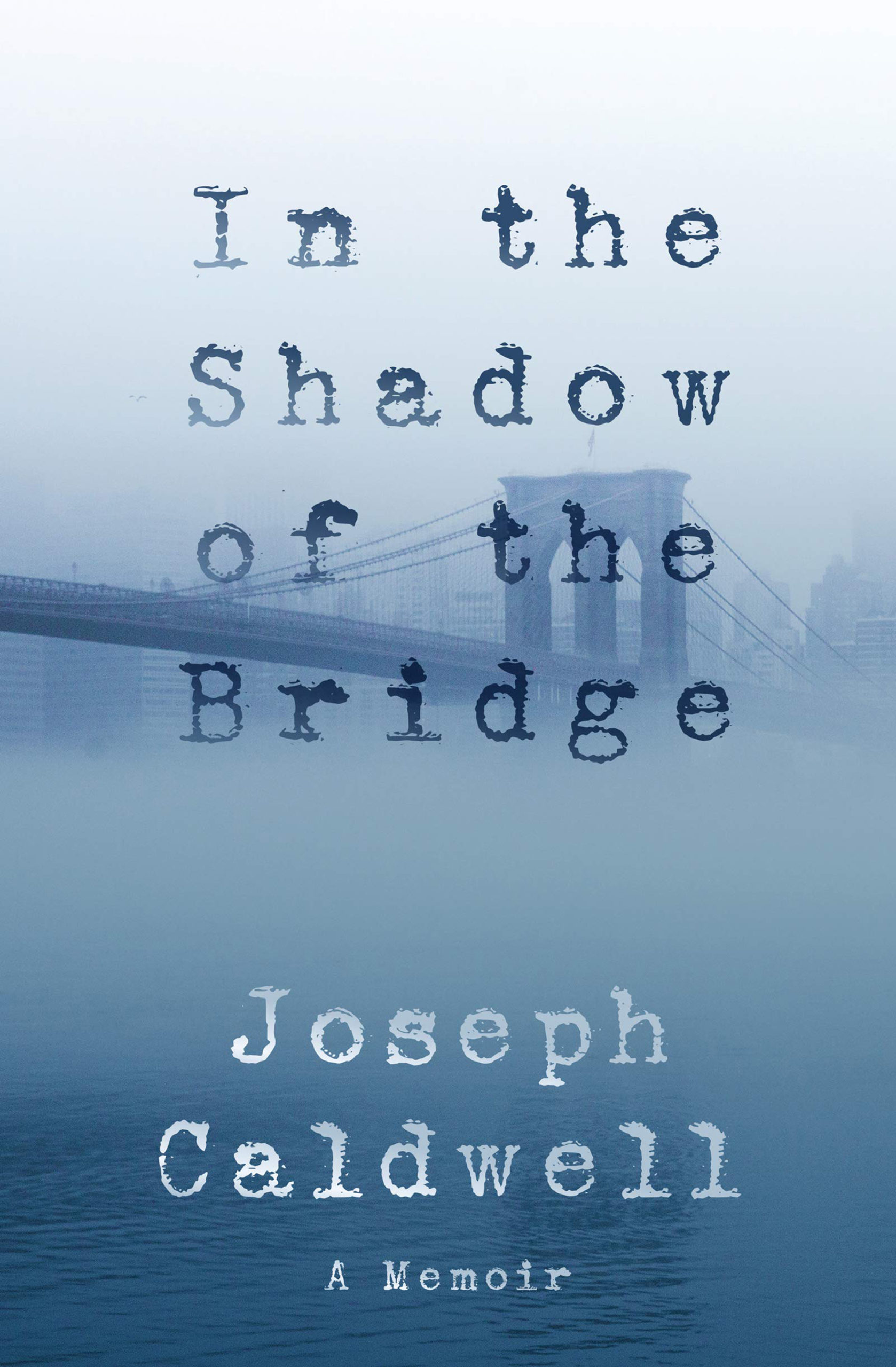‘Homosexuality As A Form Of Grace’


“In the Shadow of the Bridge” is an extraordinary memoir in its frankness and simple style, and in its self-denigration, delivered with a wit and warmth most people would be unable to summon or maintain. The author, 91-year-old Joseph Caldwell, is a “professional” in the etymological sense of the word — one who keeps the faith and who knows that to do so is to accept that not everything be “fully known or explained completely, making no allowance for mystery.”
A steadfast Catholic all his life and a “congenital” homosexual (a nun sympathetically once referred to him as a “softie”), Caldwell acknowledged his gayness at a young age in Wisconsin, where he lived with his large family, poor but dedicated to church rules that would make him an “abomination, repellent and beyond rescue” if anyone knew (“See Leviticus, Sodom and Gomorrah, and possibly Saint Paul”).
But being a Catholic, he writes, was “almost encoded in my genes to the same degree and with the same imperatives as my homosexuality.” He refused all his life — and still refuses — to see any contradiction between these two defining aspects of his being. “I have come to see my homosexuality as a form of grace. Because of my outcast state, I was forced to think for myself,” the Papacy notwithstanding. There is no justice in heaven, he says — that’s for hell! — there’s only mercy.
After serving in the Air Force, he ran off in 1950 to New York to find himself, which he did in a $24-a-month cold water flat in the shadow of the Brooklyn Bridge. He was a hopeful playwright. (He went on to win awards to Yale Drama School, writing colonies, and abroad, and taught for a while at Hofstra and NYU). He was, briefly, part of a friendship quartet of gays that included James Baldwin, and was working happily for the classical music radio station, WQXR, in love with opera. Caldwell also served as a volunteer for various charities, working with and for Dorothy Day and getting arrested for civil disobedience.
One day, on the footpath of the bridge, he picked up a young man his age, Gale, a budding photographer and modern music aficionado, who was to be the unrequited love of his life. The relationship lasted only a few months. He was devastated when Gale left but he found creative identity writing novels, plays and, for needed money, soap operas.
Now, capping an award-winning career, with, admittedly, a lot of down time, comes this beautifully written memoir about what Caldwell finally gained “30 years and 29 days” after Gale left him. “In the Shadow of the Bridge” is a love story, tragic but never sentimental. Humor and acceptance inform his recollections. Amazingly, he keeps faith in himself as a playwright as well as to the memory of his time with Gale. When asked years later, after success writing soaps (“Dark Shadows,” “The Secret Storm,” “Ryan’s Hope”) if he still writes them, his reply is simply: “Not intentionally.”
Through therapy (prompted by panic attacks after Gale left), Caldwell realized that he was suppressing a need to assert a forceful, aggressive voice, though the reader can’t tell from this memoir, which never yields to anger, pathos, or spite. He writes that he never gave up on his sense of craftsmanship or ear for dialogue. Those skills show throughout, along with a delicious sense of humor. Remarkably open about criticism he received from, among others, playwright and LGBT activist Larry Kramer, Caldwell notes that Kramer reportedly said he so hated one of Caldwell’s novels that he refused to work with him, which included founding the Gay Men’s Health Crisis, a non-profit AIDS service. Then there was a cousin who had seen some of Caldwell’s previous theatrical works and a new one which she called “the worst thing” he was ever going to write. His reply? “I have tried since to prove her correct.”
Early days in New York in the 1950s and ’60s were trying, but nothing could prepare the gay community for the plague of the ’80s. Caldwell volunteered as a caregiver at St. Vincent’s hospital, confronting without fear or patronizing sympathy the horrors that quickly reached epidemic proportions. He adhered always to the St. Vincent mantra: “No demands. No expectations.” But he did, finally, get in touch with Gale again after a silence of 15 years. They met. Gale was dying from AIDS. Caldwell quietly, confidently, unflinchingly, moved in: No demands, no expectations.
The thematic ending here is perhaps not as persuasive as Caldwell insists. He quotes from Wordsworth’s gorgeous “Intimations Ode” about the consolations of loss and adds that “yearning — that most primal of all emotions, more tenacious than love — still lives even when all hope has fled. What riches. Without end. A gift . . .” As is this memoir.



